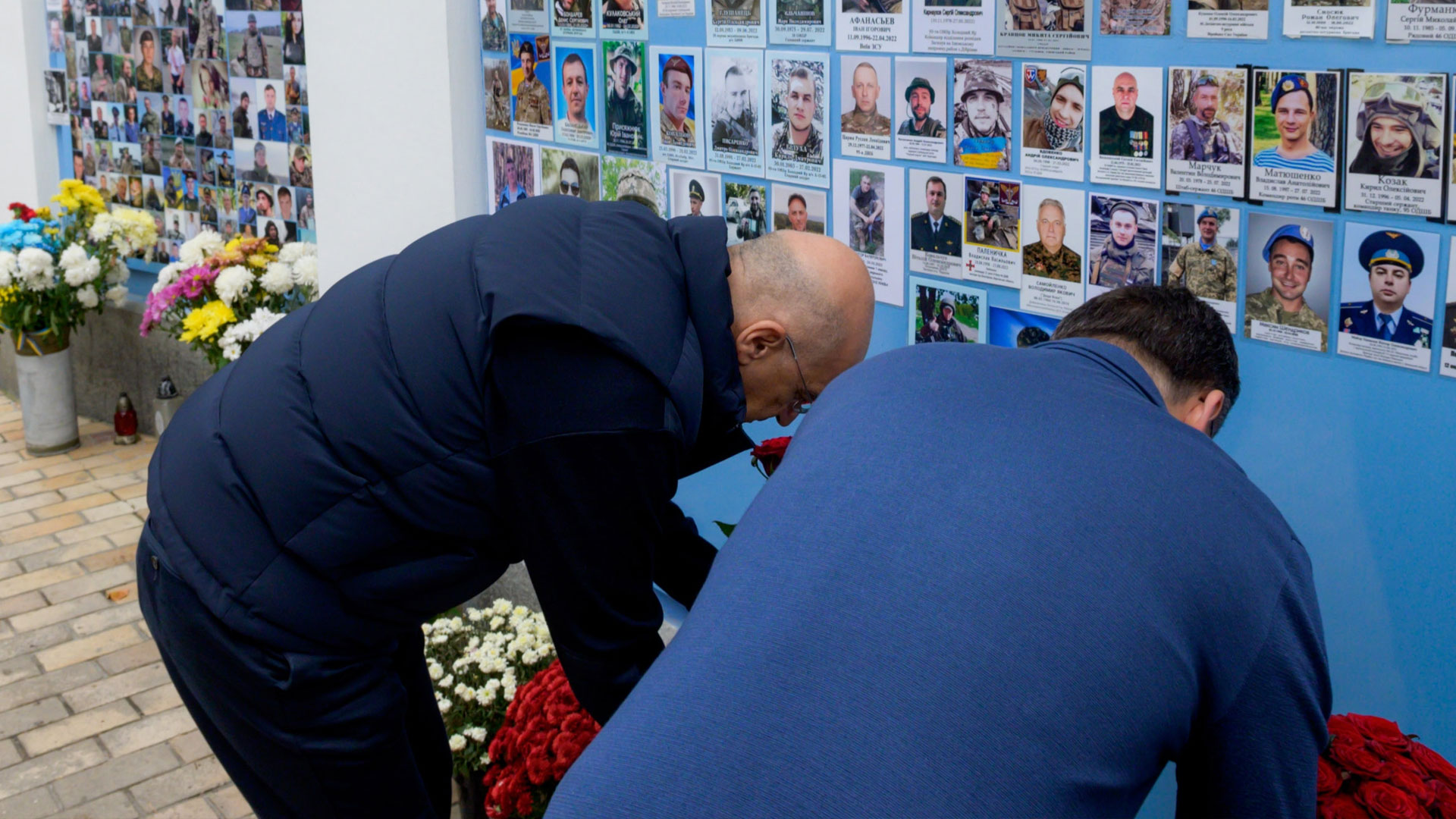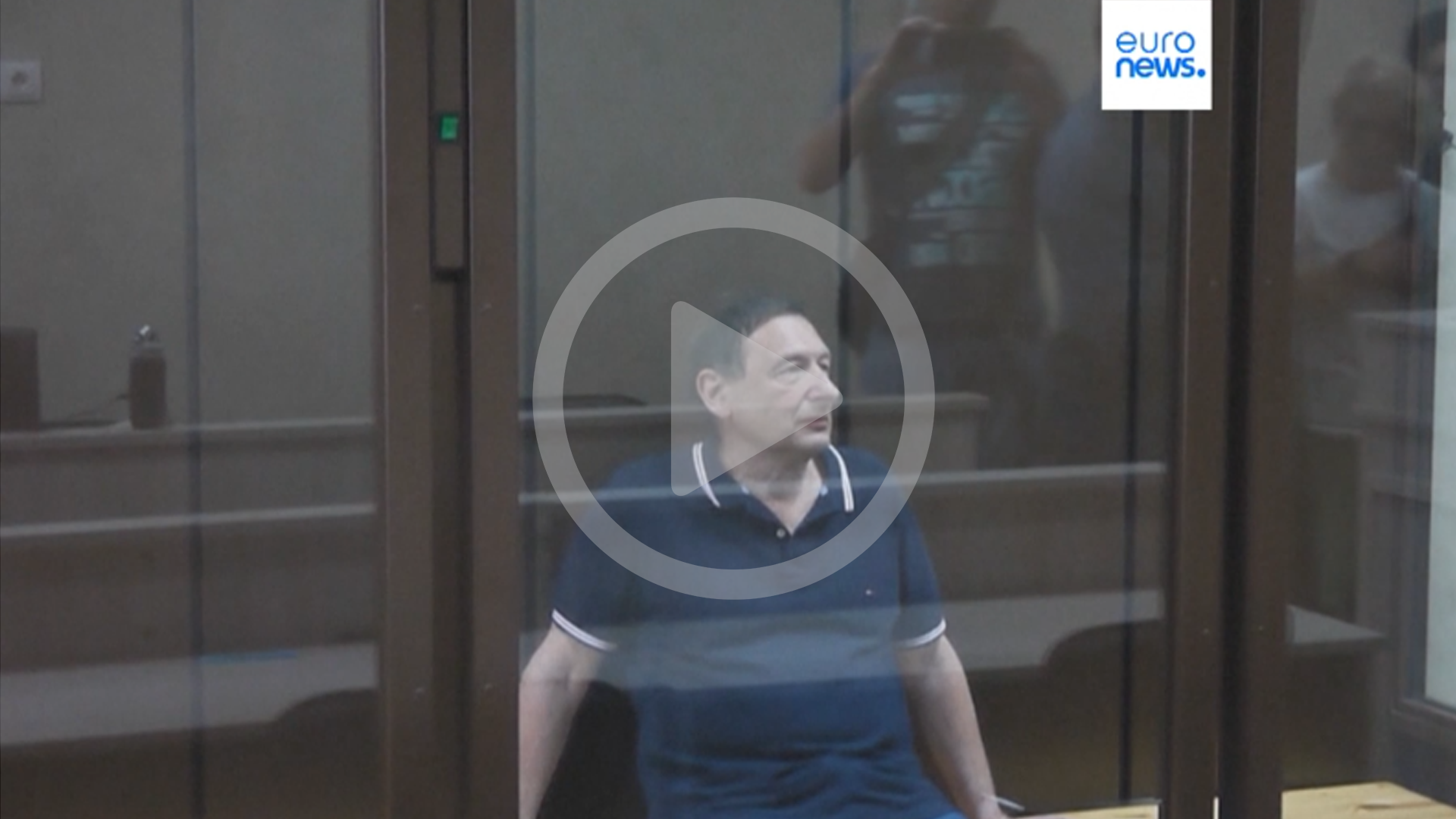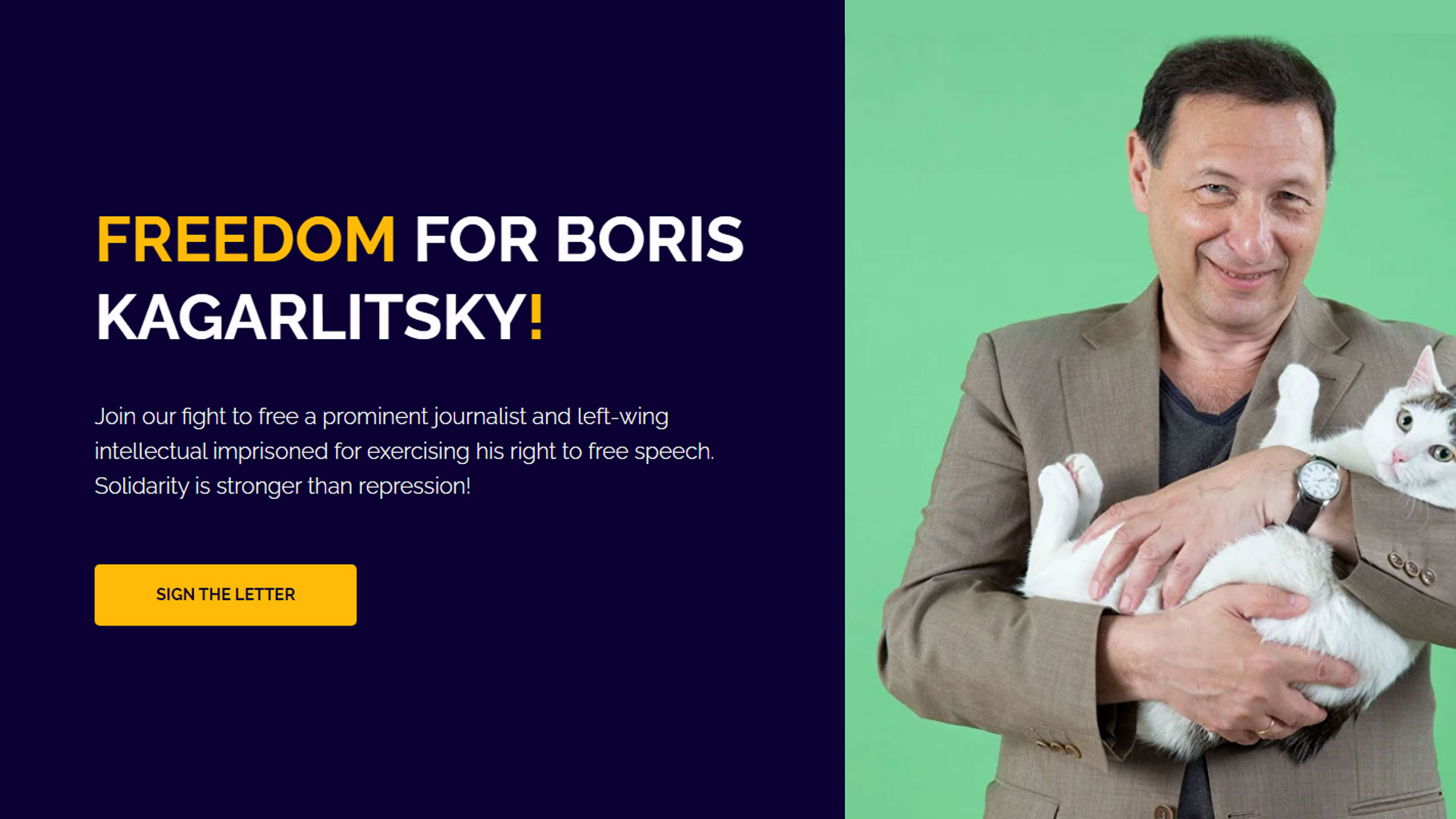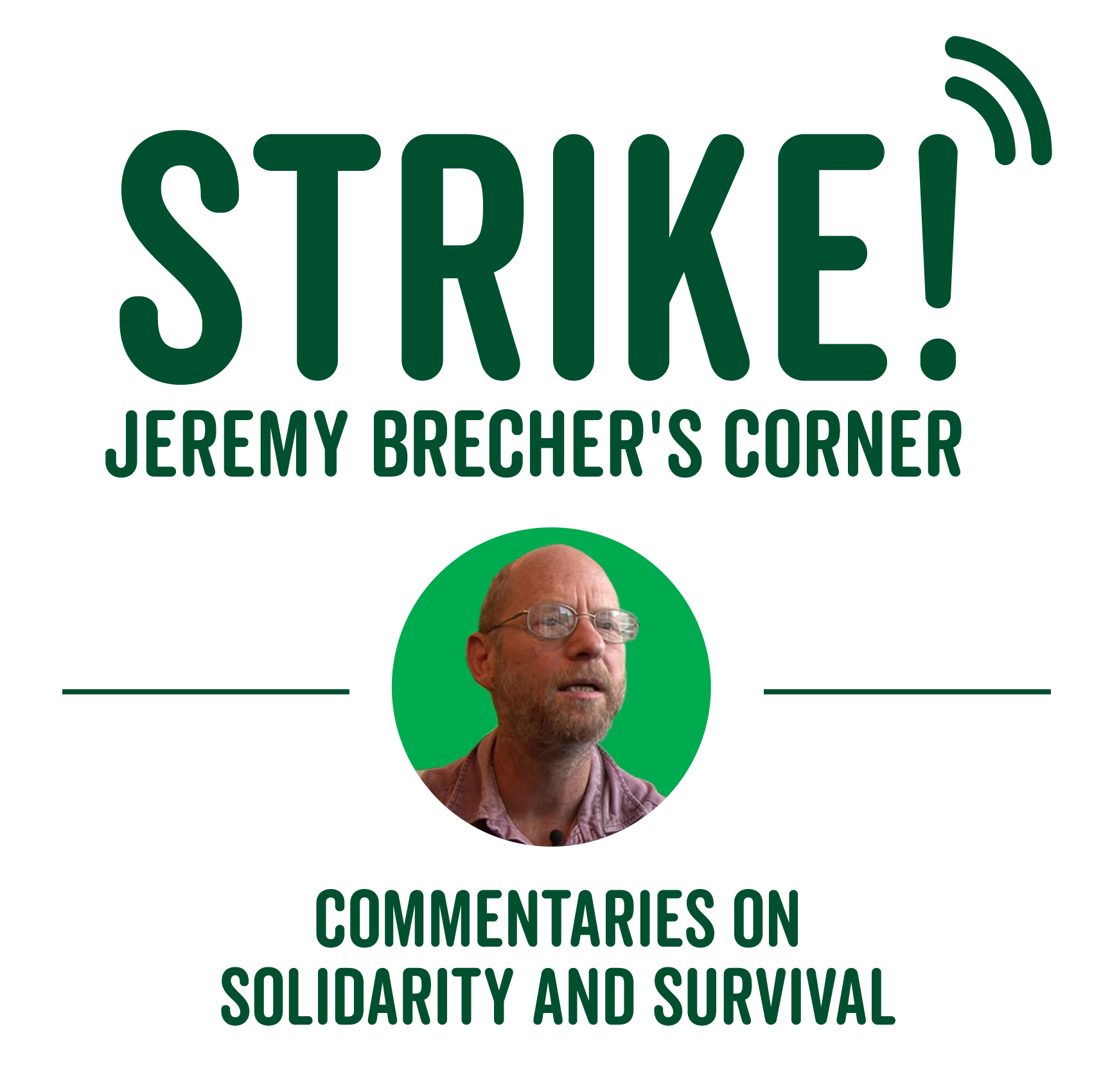Russian scholar and activist Boris Kagarlitsky has been jailed for a blog post on the Russia-Ukraine war. His recent writings range from a Ukraine peace plan to climate movement strategy. An international campaign is demanding his release from prison.
Boris Kagarlitsky, an internationally known scholar and a longtime political activist, was arrested by the Russian Federal Security Service on July 25. Although a consistent opponent of terrorism, Kagarlitsky is accused of “justifying terrorism” under the Criminal Code of the Russian Federation because of a blog post on the Russia-Ukraine war. He was ordered held until September 24; it is expected he will then be put on trial on charges that could bring a seven-year prison sentence. An international movement is demanding his release, not only to win justice for Kagarlitsky himself but to support the Russian movement against the Ukraine war, one of the few forces that can help halt the devastation of the Ukrainian and Russian people and the threat of even more devastating escalation.
Kagarlitsky’s arrest is just the latest of many efforts by the regime of Vladimir Putin to repress all opposition to Russia’s war against Ukraine by jailing thousands of protestors and driving many others into exile. It calls to mind the repression of the Vietnam war resistance under Lyndon Johnson and Richard Nixon through the prosecution of such notable Americans as Dr. Benjamin Spock, Rev. William Sloan Coffin, and Daniel Ellsberg, as well as thousands of anti-war demonstrators and draft resisters. Kagarlitsky has undoubtedly put himself in harm’s way to help stimulate a similar resistance to the Russian invasion of Ukraine.
Kagarlitsky has described Russia’s war against Ukraine as “the insane adventurist plans of the government of the Russian Federation.” But he is no shill for NATO, the US, or Western imperialism; as he says, he has “consistently condemned the invasions of Iraq, Syria, Libya, Yugoslavia for so many years, held protests against the bombing and interference in the affairs of sovereign countries and rallies of solidarity with the peoples of these countries.”[1] For decades he has been an analyst and critic of both the Russian state and of the capitalist West. He has the distinction of having been arrested previously for his scholarly and political activities by the Soviet Union in the days of Yuri Andropov; by the emerging Russian government of Boris Yeltsin in 1993; and under Vladimir Putin in 2021.
I first became aware of Boris Kagarlitsky in 1994 when I was researching the early use of the Internet for political activism. On the night of October 3, 1993, Moscow police arrested him and two other leading members of the Russian Party of Labor. They were systematically beaten to try to get them to confess to killing two policemen. The next night the wife of one discovered where they were and contacted a union officer. Within minutes, a message appealing for protest calls was posted on a series of international computer sites by means of that then-newfangled thing, E-mail. Kagarlitsky described what happened next:
We were watching from the cell as the phone calls came in. One of the first was from Japan. The police didn’t seem able to believe it. After that, the calls seemed to be coming from everywhere – there were quite a few from the [San Francisco] Bay Area in the United States.”
When police told callers that the prisoners had been released, the prisoners yelled at the top of their lungs that they were still being held. Within a few hours, most of the detainees were released and the frame-up charges were dropped.[2]
I met and got to know Boris Kagarlitsky when then-congressman Bernie Sanders brought him to Washington to testify before the U.S. House of Representatives Banking Subcommittee. Rep. Sanders had forged a temporary coalition with a rightwing congressman to oppose US funding for the International Monetary Fund. Sanders identified the IMF as the engine of economic destruction in the third world countries subjected to “structural adjustment” and in a Russia subjected to “shock therapy.” Kagarlitsky, at that time a senior research fellow at the Russian Academy of Sciences Institute for Comparative Political Studies and an advisor to the Duma, said IMF loans had not helped the Russian people. “The one thing we need from the West now is to leave us in peace,” he said. “We need it to stop imposing economic policies that are ruinous for us, while using the pretext of giving us aid.”[3]
Kagarlitsky is clearly no apologist for Western capitalist domination of Russia and Eastern Europe. He was shocked at the extent to which Washington, despite the fall of the Soviet Union, was still in thrall to a crude cold war mentality – notably when one congressman red-baited him for merely using the word “dialectic” in a statement that had nothing to do with leftism or Marxism.
While Kagarlitsky is best known today for his outspoken opposition to the Russian war on Ukraine, for decades he has been an outspoken critic of every Russian regime; an interpreter of the developing crisis of global capitalism; and an advocate of the old-fashioned – but perhaps also futuristic – idea that working people can and must join worldwide to stop the devastation wreaked by rival elites – devastation today represented by the Ukraine war, the threat of nuclear war, and the realities of climate change. It is worth taking a look at his recent proposals, ranging from a peace plan for the Ukraine war to a strategy for global action on climate change.
A Peace Plan for the Ukraine War

Ukrainian soldiers killed in the Russo-Ukrainian War in 2022 | Photo Credit: Υπουργείο Εξωτερικών, Flickr
Kagarlitsky acknowledges that there are sharply differing assessments on the left both of responsibility for the Ukraine war and what should be done about it. But he has recently tried to focus attention on how to stop it: “It is necessary to stop the bloodshed not only to correct the previous injustices, but also to prevent new ones.” He acknowledges this “won’t be easy or simple.” But “The peoples are tired of war, they want peace,” and therefore a plan is needed that will “stop the bloodshed and create conditions for the mutual laying down of arms, without fear of monstrous consequences for Ukrainians and Russians.” He advocates “an honest peace without territorial conquest or any further aggressive policy,” with remuneration for all the destruction “not from the pockets of the working people, but at the expense of those who unleashed this massacre.” He suggests a four-point peace plan:
- Stop fighting on both sides;
- Cessation of any supply of foreign weapons and ammunition to both Ukraine and Russia;
- Abandonment by the Russian Armed Forces of the territory of Ukraine as of February 1, 2014 (“zero option”);
- The UN and its peacekeeping forces are temporarily introduced to the territories left by the Russian Federation Armed Forces.
In order to avoid clashes and outrages on both sides, he proposes a “humanitarian corridor” in the territories left by the Russian troops for the unhindered exit of residents in both directions, and to temporarily deploy UN peacekeeping forces from among countries that are not directly or indirectly involved in the conflict.
He recognizes that the chances of this scenario occurring are extremely small. But looking at the reactions to this program will allow us to find out “what is actually more important to the elites and governments – is it land and territory, saving face (in fact, saving power and capital), or is it people’s lives?”[4]
Kagarlitsky’s approach has been attacked not only by the Russian government but by some Western leftists who portray it as supporting US hegemony and Western domination. Those of us who resisted the US war in Vietnam will be painfully reminded both of our repression by our own government and of the claims of liberals and even some leftists that we were acting as pawns for Communist world domination. Just as millions of people around the world supported the US anti-war movement that helped end the Vietnam war, support for the Russian peace movement can contribute significantly to ending a war that elites on all sides seem determined to perpetuate.
“The Main Challenge that Humanity Has to Face”
Kagarlitsky makes clear that the Ukraine war is taking place in the context of global climate catastrophe. Indeed, he presents the Russian-Ukrainian war as “just a specific aspect of a global transition process.” Already in the early 2000s, “the climate crisis began to be perceived as the main challenge that humanity has to face in the 21st century.” But he expresses skepticism about the willingness and even the ability of existing elites in either East or West to seriously address climate change.[5]
“No one in Russia publicly denies that there is a problem.” At the same time, “no one among top Russian politicians ever considers that to be anything serious.” The Russian elite believes “As long as we can continue to sell oil, the rest doesn’t matter.” This will continue for another decade or so, and “they do not care about anything that is going to happen in two or three decades from now.”
Western elites do understand that certain changes are necessary to address climate change. But the problem is “who is going to pay the bills” for the process of transition? Elites in the West do not want to pay. “They’re going to make someone else pay for the transition.” Unlike Russian elites, “who do not think the transition is possible or necessary,” western elites “understand that something has to be done,” but “somebody else, not them, has to pay the cost of the transition.”
Climate discussion has not been about “socio-economic transformation,” but about “technology and scientific theories.” But the main problem is “economic interests in one way or another affected by the environmental agenda.” Political and corporate representatives of the ruling class hope to use climate policy to promote economic growth “without sacrificing the fundamental principles of neoliberalism,” in particular “without changing the balance of power between labor and capital.” The corporate environmental agenda “presupposes sacrifice on the part of the working classes for the sake of preserving the efficiency of capital.”
Can this work? Not necessarily. Kagarlitsky believes we are going to face “a period of turmoil.” The problem for the elites is that “their policies are inconsistent with reality.” They are inconsistent with the objective process which is taking place in the nature of the planet.
As an alternative, Kagarlitsky calls for “eco socialist and democratic planning.” This is not to advocate “a Stalinist kind of centralized bureaucratic planning and autocratic political regime.” But “environmental activities should be combined with economic development and social development.” He cites the large and successful Russian reforestation program of the 1920s and 1930s as an example. “There was a serious effort to do things in a complex way to combine social, economic, and financial elements within one particular effort to achieve particular goals.” (This may also call to mind the reforestation program of the US New Deal in the Great Depression – and the proposals of today’s Green New Deal.)
How could this be accomplished today?
There are plenty of resources available. These resources are just in the wrong hands. These resources are in the hands of people who want things to stay exactly as they are now. So there must be some kind of global effort to expropriate the global oligarchy and to establish global environmental planning combined with social development.
Kagarlitsky calls for environmentalist social movements “to undertake a profound reorientation and connect with labor movements in the Global North and the Global South.” Ultimately, “this means building new internationalist movements.”[6]
Kagarlitsky was arrested for speaking truth to power – and, even more threateningly, speaking truth to the powerless. The international campaign to free Boris Kagarlitsky can be a vehicle for building those new internationalist movements.
To sign a petition demanding freedom for Boris Kagarlitsky: https://freeboris.info
[1] Boris Kagarlitsky, “My Peace Plan,” Portside, June 30, 2023. https://portside.org/2023-06-30/boris-kagarlitsky-my-peace-plan
[2] Jeremy Brecher and Tim Costello, Global Village or Global Pillage (Boston: South End Press, 1994), pp. 130-131.
[3] Robert Lyle, “Russia: IMF Strategy Failed,” Radio Free Europe, September 9, 1998. https://www.rferl.org/a/1089461.html
[4] Boris Kagarlitsky, “My Peace Plan,” Portside, Ibid. https://portside.org/2023-06-30/boris-kagarlitsky-my-peace-plan
[5] Boris Kagarlitsky interview, “Russia, Climate Crisis, and the War in Ukraine,” theAnalysis.news https://theanalysis.news/russia-climate-crisis-and-the-war-in-ukraine-boris-kagarlitsky-pt-3/ and Boris Kagarlitsky, “Internationalist Movements? Climate Crisis, Working Class, the Means Of Production,” Le Club, January 26, 2023.https://blogs.mediapart.fr/berliner-gazette/blog/260123/internationalist-movements-climate-crisis-working-class-means-production
[6] Internationalist Movements? Climate Crisis, Working Class, The Means Of Production, Ibid. https://blogs.mediapart.fr/berliner-gazette/blog/260123/internationalist-movements-climate-crisis-working-class-means-production



